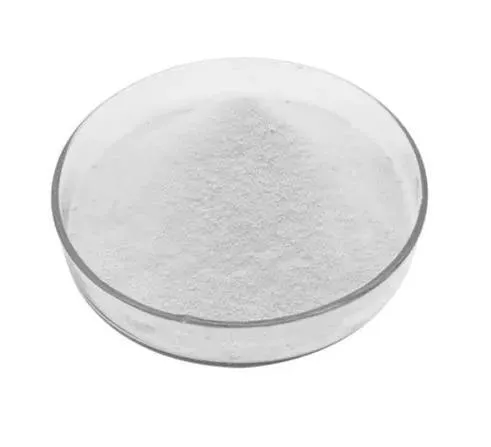Warning: Undefined array key "title" in /home/www/wwwroot/HTML/www.exportstart.com/wp-content/themes/1198/header.php on line 6
Warning: Undefined array key "file" in /home/www/wwwroot/HTML/www.exportstart.com/wp-content/themes/1198/header.php on line 7
Warning: Undefined array key "title" in /home/www/wwwroot/HTML/www.exportstart.com/wp-content/themes/1198/header.php on line 7
Warning: Undefined array key "title" in /home/www/wwwroot/HTML/www.exportstart.com/wp-content/themes/1198/header.php on line 7
- Afrikaans
- Albanian
- Amharic
- Arabic
- Armenian
- Azerbaijani
- Basque
- Belarusian
- Bengali
- Bosnian
- Bulgarian
- Catalan
- Cebuano
- China
- China (Taiwan)
- Corsican
- Croatian
- Czech
- Danish
- Dutch
- English
- Esperanto
- Estonian
- Finnish
- French
- Frisian
- Galician
- Georgian
- German
- Greek
- Gujarati
- Haitian Creole
- hausa
- hawaiian
- Hebrew
- Hindi
- Miao
- Hungarian
- Icelandic
- igbo
- Indonesian
- irish
- Italian
- Japanese
- Javanese
- Kannada
- kazakh
- Khmer
- Rwandese
- Korean
- Kurdish
- Kyrgyz
- Lao
- Latin
- Latvian
- Lithuanian
- Luxembourgish
- Macedonian
- Malgashi
- Malay
- Malayalam
- Maltese
- Maori
- Marathi
- Mongolian
- Myanmar
- Nepali
- Norwegian
- Norwegian
- Occitan
- Pashto
- Persian
- Polish
- Portuguese
- Punjabi
- Romanian
- Russian
- Samoan
- Scottish Gaelic
- Serbian
- Sesotho
- Shona
- Sindhi
- Sinhala
- Slovak
- Slovenian
- Somali
- Spanish
- Sundanese
- Swahili
- Swedish
- Tagalog
- Tajik
- Tamil
- Tatar
- Telugu
- Thai
- Turkish
- Turkmen
- Ukrainian
- Urdu
- Uighur
- Uzbek
- Vietnamese
- Welsh
- Bantu
- Yiddish
- Yoruba
- Zulu
Aug . 31, 2024 03:22 Back to list
Aspartame Based Sweeteners - Low-Calorie Sugar Alternatives
Aspartame-based sweeteners have gained significant attention in recent years due to their widespread use in food and beverage products as a low-calorie alternative to sugar. Aspartame, a low-calorie sweetener, was first discovered in 1965 and has since become one of the most popular artificial sweeteners worldwide. It is approximately 200 times sweeter than sucrose, meaning that only a small amount is required to achieve the desired sweetness in various products.
.
Despite its popularity, aspartame has been the subject of numerous debates regarding its safety and health implications. Various health organizations, including the U.S. Food and Drug Administration (FDA) and the European Food Safety Authority (EFSA), have conducted extensive research on aspartame's safety and concluded that it is safe for human consumption at recommended levels. The FDA approved aspartame for use in food products in 1981, and since then, billions of people have safely consumed foods and drinks containing this sweetener.
aspartame based sweetener

However, some studies have raised concerns about potential health risks associated with aspartame consumption, including links to headaches, allergic reactions, and even more severe conditions. As a result, individuals sensitive to aspartame, such as those with the rare genetic disorder phenylketonuria (PKU), are advised to avoid it. This has led to a growing interest in alternative sweeteners, including natural options like stevia and monk fruit extract.
The rise of health-conscious consumers has prompted food manufacturers to continually assess their product formulations. Many are now offering aspartame-free options to cater to those who prefer to avoid artificial sweeteners altogether. As the market evolves, consumers are becoming more educated about the ingredients in their food, leading to a demand for transparency and healthier alternatives.
In conclusion, aspartame-based sweeteners remain popular due to their convenience and low-calorie benefits. They have become a staple in the diets of many, yet ongoing discussions about their safety highlight the need for consumers to remain informed and make choices that align with their health goals. As research continues to unfold, the landscape of sweeteners may shift, but aspartame will likely remain a significant player in the sweetener market for years to come.
Latest news
-
Certifications for Vegetarian and Xanthan Gum Vegetarian
NewsJun.17,2025
-
Sustainability Trends Reshaping the SLES N70 Market
NewsJun.17,2025
-
Propylene Glycol Use in Vaccines: Balancing Function and Perception
NewsJun.17,2025
-
Petroleum Jelly in Skincare: Balancing Benefits and Backlash
NewsJun.17,2025
-
Energy Price Volatility and Ripple Effect on Caprolactam Markets
NewsJun.17,2025
-
Spectroscopic Techniques for Adipic Acid Molecular Weight
NewsJun.17,2025

